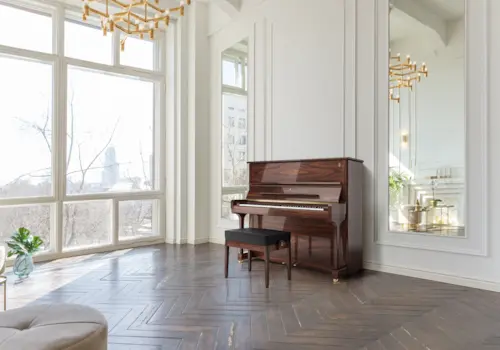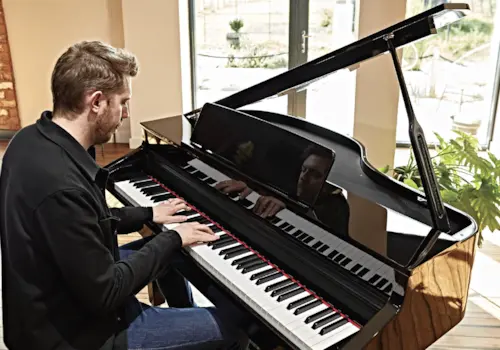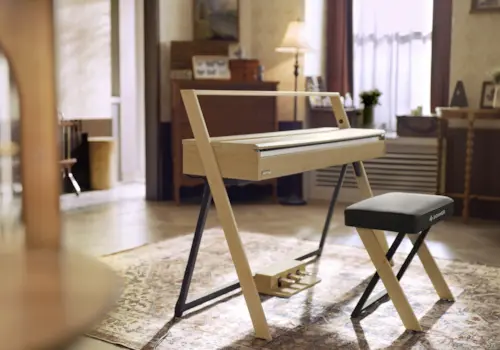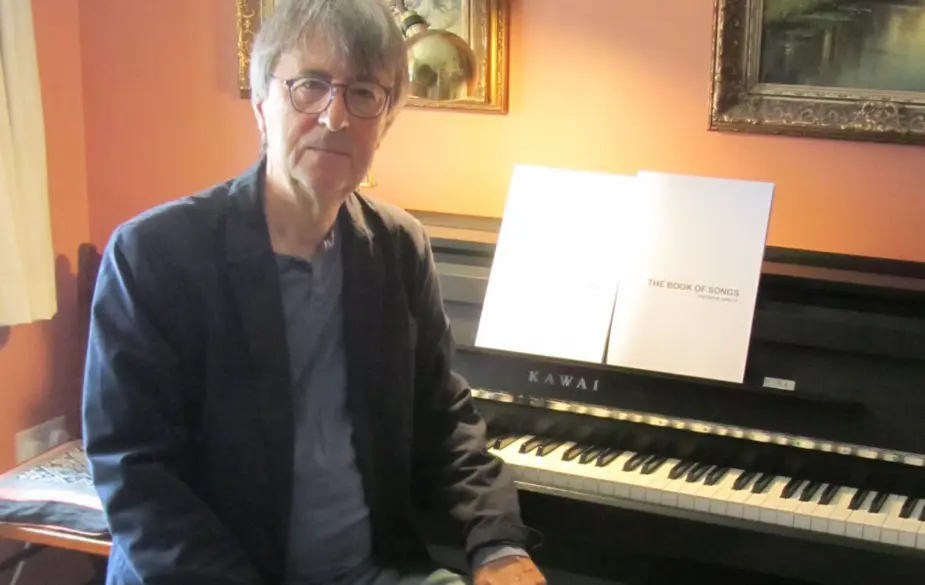We thought that taking a look back at the most recent winning piece may inspire you to give it a shot next year...
Slow-burning intensity, mystical harmonies and a story with bubbles: a unique and winning combination for a new piano piece, according to Erica Worth and her fellow judges of this year’s 2021 Composing Competition.
The best things in life don’t come easy. That’s how we felt about this winner. Written by piano teacher Patrick Dailly, Our Mortal World bristles with alternating time signatures, challenging harmonies, accidentals, changing tempi – and even bubble illustrations.
Was it personal anxiety, freedom of time or lockdown restrictions that inspired so many Pianist readers to get down to work? Impossible to say, but when the deadline was up, we had received an astonishing 152 entries. They ran the gamut of types, levels and styles, from the simplest of tonal waltzes to polyrhythmic blues numbers and hair-raising glissando-ridden etudes.
The judging process also required some adjustment. Unlike our usual meeting around a table with a piano to the side, five of us tuned into Zoom one December morning to play through, and chat through, the 20 shortlisted scores.
Nigel Scaife was smitten from his first play-through of Our Mortal World. "For me, this piece is deeply reflective of the times we’ve lived through recently," he says. "It is full of questioning phrases and contrasting expressive gestures. I recommend listening to it a couple of times before you play it and let its introspective, meditative intensity get under your skin. The semiquaver-dotted quaver motif and the questioning phrase that returns in different guises bind the structure together to form a personal, creative and deeply felt expression."
Melanie Spanswick took longer to warm to it. "If you look at the music of Our Mortal World, you may be forgiven for thinking that it’s rather curious," she explains. "The composer’s descriptive comments litter the score, and they come complete in their own cartoon-like 'bubbles', like performer directions.
"But on repeated listening, we’re transported to a new world. The dark, chromatic harmonies, and the sense of space built into the rests, contribute to its unsettling character. By the end of the piece, we find ourselves in a different state of mind – exactly as the composer intended."
The more I listened, and played it for myself (Chenyin Li does the piece proud on the covermount), the deeper I travelled into the world of Dailly’s piece. I hear late Scriabin – the ravishing Vers la flamme in particular – in the melodic falling seconds and augmented-chord harmonies.
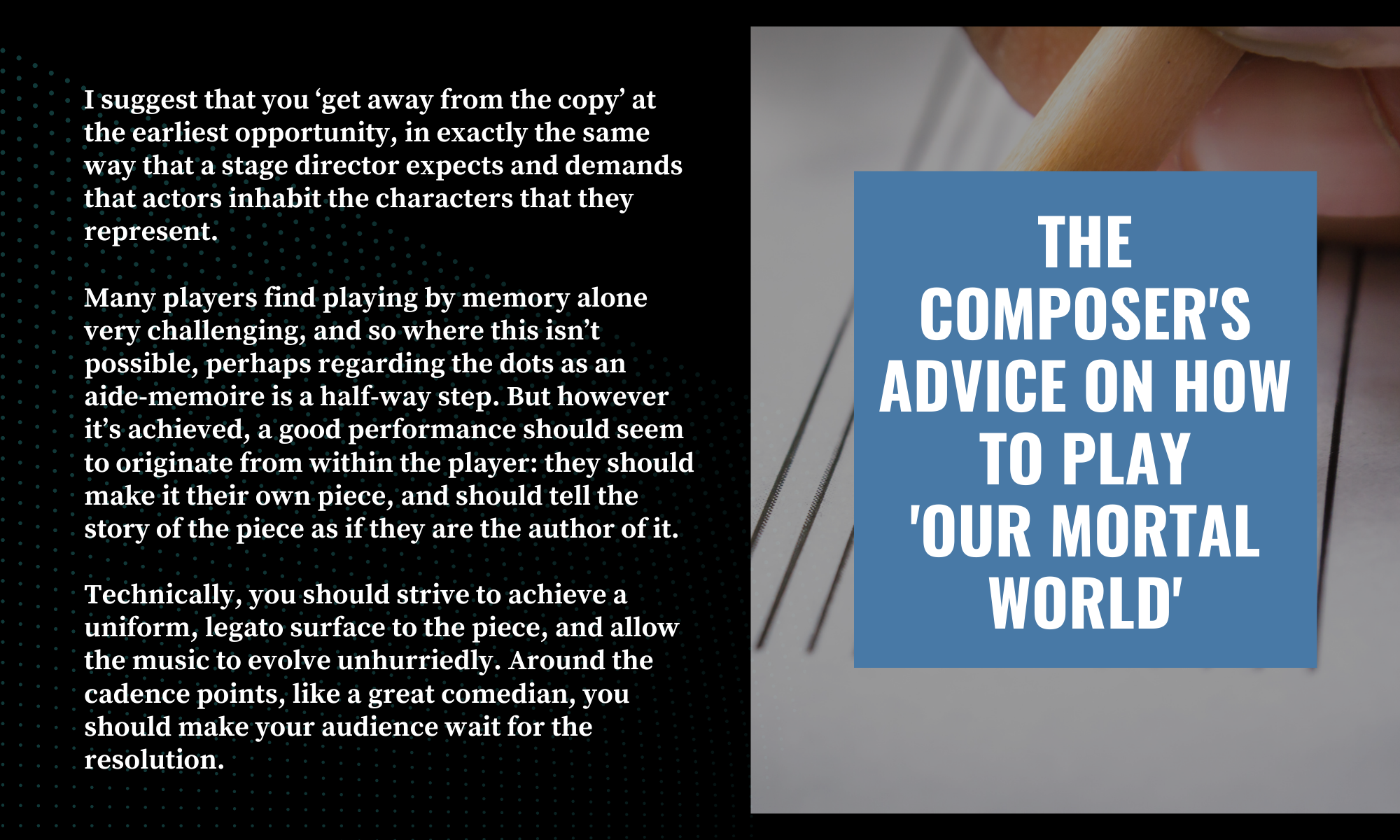
Blowing bubbles
As for the cartoon-like ‘bubbles’, who better to explain them than the composer? Storytelling is an intrinsic part of writing music, as Dailly remarked to me:
"Technique is important, but it doesn’t encompass things like meaning, narrative, having something to say or needing to communicate to other humans. If we restricted ourselves to Italian performance directions, we would know how to play a piece, but we would not know the meaning of what we were playing. Because playing the piano is technically demanding, we often never get beyond sorting out our technique.
"Art demands more. It demands that we inhabit the secondary world of the piece, it requires us to shed the paraphernalia of here and now, and get inside another reality, if only for a short time. I included the bubbles in order to speed up the process of understanding the argument of the music. The player may hopefully appreciate the meaning of the music from first sight."
Our Mortal World is printed inside the Scores section of issue 120 of Pianist, and performed by Chenyin Li on the Pianist album.

